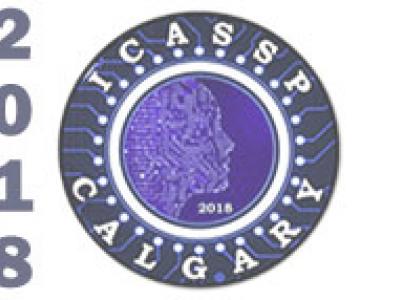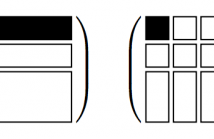- Communication and Sensing aspects of Sensor Networks, Wireless and Ad-Hoc Networks
- Communication Systems and Applications
- MIMO Communications and Signal Processing
- Signal Transmission and Reception

- Read more about Tone Reservation and Solvability Concepts for the PAPR Problem in General Orthonormal Transmission Systems
- Log in to post comments
Large peak to average power ratios (PAPRs) are problematic for communication systems. One possible approach to control the PAPR is the tone reservation method. We analyze the tone reservation method for general complete orthonormal systems, and consider two solvability concepts: strong solvability and weak solvability. Strong solvability requires a rather strong control of the peak value of the transmit signal by the energy of the information signal, and thus might be to restrictive for practical applications.
- Categories:
 77 Views
77 Views
- Read more about FINITE-ALPHABET NOMA FOR TWO-USER UPLINK CHANNEL
- Log in to post comments
We consider the non-orthogonal multiple access (NOMA) design for a classical two-user multiple access channel (MAC) with finite-alphabet inputs. In contrast to the majority of existing NOMA schemes using continuous Gaussian distributed inputs, we consider practical quadrature amplitude modulation (QAM) constel- lations at both transmitters, whose sizes are not necessarily the same.
poster.pdf
- Categories:
 25 Views
25 Views
- Read more about FLEXIBLE MULTI-GROUP SINGLE CARRIER MODULATION: OPTIMAL SUBCARRIER GROUPING AND RATE MAXIMIZATION
- Log in to post comments
- Categories:
 2 Views
2 Views- Read more about JOINT CHANNEL AND CARRIER FREQUENCY ESTIMATION FOR M-ARY CPM OVER FREQUENCY-SELECTIVE CHANNEL USING PAM DECOMPOSITION
- Log in to post comments
- Categories:
 5 Views
5 Views- Read more about Combining Belief Propagation and Successive Cancellation List Decoding of Polar Codes on a GPU Platform
- Log in to post comments
The decoding performance of polar codes strongly depends on the decoding algorithm used, while also the decoder throughput and its latency mainly depend on the decoding algorithm. In this work, we implement the powerful successive cancellation list (SCL) decoder on a GPU and identify the bottlenecks of this algorithm with respect to parallel computing and its difficulties. The inherent serial decoding property of the SCL algorithm naturally limits the achievable speed-up gains on GPUs when compared to CPU implementations.
- Categories:
 11 Views
11 Views
- Read more about SAMPLING AND DISTORTION TRADEOFFS FOR INDIRECT SOURCE RETRIEVAL
- Log in to post comments
We study the problem of remote reconstruction of a continuous signal from its multiple corrupted versions. We are interested in the optimal number of samples and their locations for each corrupted signal to minimize the total reconstruction distortion of the remote signal. The correlation among the corrupted signals can be utilized to reduce the sampling rate.
Poster3.pdf
- Categories:
 7 Views
7 Views
- Read more about Generalized Approximate Message Passing for One-Bit Compressed Sensing with AWGN
- Log in to post comments
Compressed sensing recovery techniques allow for reconstruction of an unknown sparse vector from an underdetermined system of linear equations. Recently, a lot of attention was drawn to the problem of recovering the sparse vector from quantized CS measurements. Especially interesting is the case, when extreme quantization is enforced that captures only the sign of the measurements. The problem becomes even more difficult if the measurements are corrupted by noise. In this paper we consider \ac{AWGN}.
- Categories:
 12 Views
12 Views
- Read more about In-Network Linear Regression with Arbitrarily Split Data Matrices
- Log in to post comments
We address for the first time the question of how networked agents can collaboratively fit a Morozov-regularized linear model when each agent knows a summand of the regression data. This question generalizes previously studied data-splitting scenarios, which require that the data be partitioned among the agents. To answer the question, we introduce a class of network-structured problems, which contains the regularization problem, and by using the Douglas-Rachford splitting algorithm, we develop a distributed algorithm to solve these problems.
Poster.pdf
- Categories:
 4 Views
4 Views